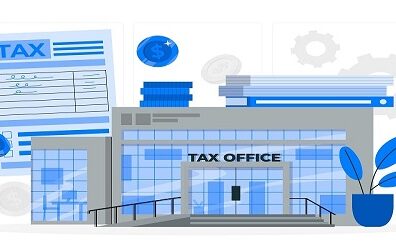
Table of Contents
Introduction
In the intricate tapestry of corporate governance, Articles of Association emerge as the guiding threads that weave together the purpose, regulations, and structural intricacies of a company. Often referred to as the corporate compass, these documents play a pivotal role in steering the ship of business, establishing a contractual foundation between the company and its shareholders.
What are Articles of Association (AOA)
As per Section 2(5) of the Companies Act, 2013- ”articles” means the articles of association of a company as originally framed or as altered from time to time or applied in pursuance of any previous company law or of this Act
A company’s Articles of Association are a set of documents that define its purpose and specify the rules that will govern its activities. Often abbreviated as ‘articles,’ these documents play a pivotal role in governing a business and can be viewed as a contractual agreement between the company and its shareholders.
Described as the ‘user guide’ for a business, these articles typically delve into the organizational structure and procedures for shareholder meetings. They articulate the agreed-upon rules that govern the company, covering aspects of managerial and administrative responsibilities while outlining the rights of shareholders.
Importance of Articles of Association (AOA)
The Articles of Association serve as the corporate constitution, outlining fundamental guidelines for a company. Specifically addressing shareholders, these articles establish regulations overseeing the issuance of shares, distribution of dividends, and the delineation of voting rights.
Housed at the registered office, the Articles of Association are publicly accessible records, offering a comprehensive reference. This document acts as a practical manual, guiding the execution of day-to-day tasks crucial for the company’s functioning, including share issuance, dividend distribution, financial audits, and voting rights allocation.
Functioning as the internal governance framework, the Articles of Association set forth rules and by-laws governing the company’s internal affairs and the conduct of its members. It outlines internal regulations for company governance, delineates the powers of directors and officers, and defines the rights of shareholders.
These regulations are legally binding on both the members and the company itself. In cases of violation, members have the right to take legal action against the company, mirroring the company’s ability to sue its members for enforcement and restraint against any breaches of the Articles of Association.
Types of Articles of Association (AOA)
The prescribed formats for Articles of Association (AOA) are outlined in Tables F, G, H, I, and J, each customized for various types of companies, as detailed in Schedule I of the Companies Act, 2013. It is obligatory for the AOA to adhere to the corresponding form that corresponds to the nature of the company:
- Table F: AOA for a company limited by shares
- Table G: AOA for a company limited by guarantee with a share capital
- Table H: AOA for a company limited by guarantee without a share capital
- Table I: AOA for Table J: an unlimited company with a share capital
- Table J: AOA for an unlimited company without a share capital
Content of Articles of Association (AOA)
The Articles of Association (AOA) Of a company must contain the clauses regarding the following:
- Name
- Share Capital and Variation of Rights
- Lien
- Call on Shares
- Transfer/Transmission/Forfeiture of Shares
- Alteration of Capital
- Capitalization of Profits
- Buyback of Shares
- General Meetings
- Proceeding at General Meetings
- Adjournment of Meetings
- Voting Rights
- Proxy
- Board of Directors
- Proceedings of the Board
- Key Managerial Personnel
- Seal
- Dividend and Reserves
- Winding Up etc.
Can Articles of Association (AOA) Be Altered
In the course of its evolution, a company may inevitably encounter the need for adjustments to its articles of association. This could stem from evolving legal landscapes or directives issued by regulatory bodies.
When a modification becomes imperative, the company initiates a pivotal step by convening a general meeting. At this gathering, directors officially endorse a statement, apprising shareholders of the necessity to revise the articles of association.
Following this, a dedicated shareholders’ meeting is orchestrated to pass what is known as a special resolution. According to Section 14 of the Companies Act, 2013, a company, subject to the Act’s provisions and conditions in its memorandum, can indeed alter its articles through a special resolution.
It is crucial to note that every alteration to the articles must be promptly filed with the Registrar, accompanied by a printed copy of the revised articles, all within a specified fifteen-day timeframe (as per Section 14(2)).
The significance of such alterations lies in their validation; any registered changes are deemed as valid as if they were originally part of the articles. A company holds the flexibility to make alterations in several ways: by adopting a new set of articles, adding or inserting new articles, removing existing articles, amending specific articles, or substituting particular articles.
However, it’s essential to highlight that any alteration leading to the conversion of a public company into a private one necessitates the approval of the Tribunal, a process further elucidated in Chapter 1. This procedural aspect ensures that significant transformations are subject to due scrutiny and regulatory approval.
Process For Alteration of Articles of Association (AOA)
For a company contemplating amendments to its articles of association, a meticulous procedure must be adhered to, as outlined below:
- Board Meeting Arrangements: Convene and conduct a Board meeting to:
- Evaluate and determine which articles necessitate alteration, passing a formal resolution accordingly.
- Fix the time, date, and venue for a company general meeting in which the special resolution under Section 14 of the Companies Act, 2013 required for alteration of articles must be passed.
- Approve the notice, agenda, and accompanying explanatory statement to be appended to the general meeting notice, in accordance with Section 102 of the Act.
- Empower the Director or Company Secretary or another competent officer to issue the approved notice for the general meeting.
- Stock Exchange Notification: Following the Board meeting’s conclusion, promptly dispatch particulars of the proposed alteration of the articles of association to the stock exchanges where the company’s securities are listed.
- General Meeting Preparations: Issue the general meeting notice, inclusive of the explanatory statement, to all members, directors, and the company’s auditor. Simultaneously, inform the pertinent stock exchanges as per the SEBI (Listing Obligations and Disclosure Requirements) Regulations, 2015.
- Conducting the General Meeting: Organize and conduct the general meeting to pass the special resolution. Noteworthy, if the company is listed and the alteration pertains to provisions resulting in conversion to a private company, ensure the Special Resolution is passed only through postal ballot.
- Stock Exchange Reporting: Forward a copy of the general meeting proceedings to the relevant stock exchanges in line with the SEBI (Listing Obligations and Disclosure Requirements) Regulations, 2015.
- Filing with the ROC: File Form MGT – 14 with the Registrar of Companies (ROC), accompanied by a certified copy of the special resolution and the explanatory statement. Include a copy of the altered Articles of Association within fifteen days of the resolution’s passage, along with the requisite filing fee.
- Implementation of Changes: Incorporate the necessary adjustments in all copies of the company’s articles of association present in the company’s office.
Limitation to Alteration of Articles of Association (AOA)
Section 31 grants companies the flexibility to modify their articles at any point by issuing a special resolution and submitting the same to the Registrar. The authority bestowed by Section 31 for article alteration is nearly unrestricted, with only the following key limitations:
- Modifications to the articles must not empower a company beyond the limits specified in its memorandum. Should any conflict arise between the memorandum and the articles, the preference will be given to the memorandum. Hence Memorandum of Association shall prevail when in conflict with Articles.
Case Study:
In the case of Hutton v. Scarborough Cliff Hotel Co, a resolution passed during a company’s general meeting sought to amend the articles by introducing the authority to issue preference shares, a provision absent from the memorandum. This amendment was deemed ineffective. However, a shift in perspective occurred following Andrews v. Gas Meter Co Ltd. In this latter case, a company was permitted to modify its articles to allow for the issuance of preference shares, even in the absence of explicit mention in the memorandum. The authority to alter articles is constrained only by clear prohibitions outlined in the memorandum, whether expressed or implied.
- The alteration should align with the provisions of the Act and other relevant statutes, avoiding any inconsistency.
Case Study:
In the legal case of Madhava Ramachandra Kamath v. Canara Banking Corporation, the company’s articles featured a provision empowering the expulsion of a member if they unjustly or unlawfully pursued legal action related to any matter connected with the company. Upon expulsion under this provision, the individual would be permanently barred from rejoining the company. Utilizing this clause, the company expelled the petitioner during a general meeting.
Following the expulsion resolution, the company amended its articles by adding to the aforementioned clause. This addition granted the company the authority to compel an expelled member to sell their shares to any person at a price determined by the articles. Furthermore, it allowed a director to sign the necessary transfer documents on behalf of the transferor if they failed to do so.
As a result of this addition, the company authorized a director to register the transfer of the petitioner’s shares without a valid instrument of transfer. Dissatisfied with this, the petitioner sought legal recourse, and the court ruled that the provision within the articles, facilitating the expulsion of a member and authorizing the transfer of their shares, is invalid as it contradicts the provisions of the Companies Act, 1956.
- Modifications to the articles must avoid the inclusion of provisions that are illegal or contrary to public policy. Consequently, any clauses that unreasonably restrict trade or establish perpetual interest in property transfer should not be incorporated into the articles.
- A company possesses the authority to modify its articles, even if such alterations result in a breach of contract. If the contract is entirely reliant on the articles, the company would not incur liability for damages in the event of a breach caused by the alteration. However, if the contract is separate from the articles, the company would be held liable for damages in the event of a breach resulting from changes to the articles.
- The alteration must not result into a fraud on the minority shareholders of the company.
- The articles must not be modified to obligate an existing member to subscribe for additional shares or increase their liability to contribute to the share capital without their expressed written consent.
Entrenchment of Articles of Association (AOA)
In Articles of Association, certain provisions are intentionally crafted to be resistant to change, constituting what is commonly known as ‘entrenchment.’ The term ‘entrench’ implies a steadfast belief, attitude, or practice that proves challenging to modify. Put simply, entrenchment clauses refer to provisions within the Articles of Association that are exceptionally resistant to modification or amendment.
The Companies Act of 2013, Section 5(3), specifically addresses entrenchment clauses within the Articles of Association, stipulating that certain provisions cannot be modified or amended solely through the passage of a special resolution. Section 5(4) further specifies that these entrenchment clauses may only be introduced into the Articles of Association during:
- The incorporation process.
- Subsequent amendments to the Articles of Association through either:
- Unanimous agreement among all members, in the case of a private company.
- Passing a special resolution, in the case of a public company.”
Conclusion
In the dynamic landscape of corporate governance, Articles of Association stand as a testament to the structured foundation on which successful businesses thrive. Crafting a robust set of articles ensures not only legal compliance but also positions the company for transparency, growth, and sustained success.
Sample Resolutions For Alteration of Articles of Association of the Company
SAMPLE OF SPECIAL RESOLUTION FOR ALTERING THE ARTICLES OF ASSOCIATION OF A COMPANY BY ADOPTION OF NEW SET OF ARTICLES
“RESOLVED THAT the Article of Association of the Company by and are hereby replaced by the adoption of new set of articles as provided in Tables F, G, H, I & J in Schedule I as the case may be of the Companies Act, 2013.”
Explanatory Statement
The current Articles of Association for the company were initially adopted in ………….. Since then, the Act has undergone several amendments, and additional Acts have impacted various provisions of the Companies Act, 2013.
The company’s directors believe it is necessary to revise the articles to ensure they fully comply not only with the current laws, regulations, and rules governing the company but also with modern secretarial practices.
Given the numerous proposed changes, including alterations, deletions, and insertions to the existing articles, adopting an entirely new set of Articles of Association that incorporates all the proposed modifications is deemed more convenient.
Your directors propose the resolution for your consideration and adoption of the new set of Articles of Association to replace the existing ones. A copy of the current Articles of Association is available for inspection at the company’s registered office between Monday and Friday, from 2 P.M. to 5 P.M., for any interested member.
It’s important to note that none of the directors has a personal interest in the proposed resolution.
SAMPLE OF SPECIAL RESOLUTION FOR ALTERATION OF ARTICLES BY ADDITION/INSERTION OF A NEW ARTICLE
“RESOLVED THAT the Articles of Association of the company be and are hereby altered by inserting at the end of article ….. of the Articles of Association of the company, the following:
“Notwithstanding anything contained in these articles, the managing directors and whole-time directors of the company shall not be required to hold any such qualification shares.”
Explanatory Statement
Article ………………… within the company’s articles of association stipulates that a director’s qualification shall entail holding equity shares in the company with an aggregate nominal value of ‘…………………’. The managing directors/whole-time directors, as per article …………………, are generally exempt from mandatory retirement by rotation.
However, should the number of directors (including managing/whole-time directors) not subject to retirement by rotation exceed one-third of the total director count at any given time, article ………………… mandates their retirement by rotation to comply with Section 152 of the Companies Act, 2013.
To eliminate any ambiguity and consider the unforeseen circumstances under which managing directors/whole-time directors might not be required to hold qualification shares, it is proposed to explicitly state that they shall not be obligated to hold such shares.
A copy of the current articles, along with the proposed alteration, is accessible for inspection at the company’s registered office during regular business hours on any working day.
None of the directors has a personal interest or concern in the proposed resolution, except in relation to the qualification shares required or not required to be held by them in the company.
SPECIMEN OF SPECIAL RESOLUTION FOR ALTERATION OF ARTICLES BY DELETION OF AN ARTICLE
“RESOLVED THAT Articles of Association of the Company be and are hereby altered by deleting article ………………… of the articles of association of the company.
RESOLVED FURTHER THAT after deletion, the existing Articles No. …………….. to ………………… be renumbered as Article No. …………….. to ………………
Explanatory Statement
Article …………….. in the company’s articles of association pertains to the appointment of a managing agent.
As per the current legal framework, companies are prohibited from appointing managing agents/secretaries. Despite the long-standing redundancy of this article, it has persisted in the company’s articles of association. The directors now deem it necessary to promptly remove this article as it no longer aligns with the provisions of the Companies Act, 2013.
The existing articles, along with the proposed deletion, are open for inspection at the company’s registered office on any working day during regular business hours.
None of the directors has any personal concern or interest in the proposed resolution.
SPECIMEN OF SPECIAL RESOLUTION FOR ALTERATION OF ARTICLES BY AMENDMENT OF A SPECIFIC ARTICLE
“RESOLVED THAT the Articles of Association of the company be and are hereby altered by replacing Article No.13 of the Articles of Association of the company.”
Explanatory Statement
Article 13 specifically references Section 113 of the Companies Act, 1956. Following the enactment of the Companies Act 2013, the Central Government introduced the Companies (Share Capital and Debentures) Rules 2014, and the SEBI (LODR) Regulations, 2015 now contain mandatory provisions regarding the issuance of share certificates by companies. To align with these developments, the directors have proposed an alteration to the articles, specifying that the issuance of share certificates shall adhere to the Companies (Share Capital and Debentures) Rules, 2014, and the provisions of the SEBI (LODR) Regulations, 2015 of the stock exchanges. This proposed alteration is presented for approval at the upcoming general meeting.
Current Article:
“13. Share certificates:
“The certificate of title to shares and duplicate thereof when necessary, shall be issued under the Seal of the company, subject to the provisions of Section 113 of the Act”
Proposed Amendment:
“The certificate of shares and the duplicate thereof shall be issued under the common seal of the company, subject to section 46 and Companies (Share Capital and Debentures) Rules, 2014.”
A copy of the existing articles, along with the proposed amendment, is accessible for inspection by the members of the company at the registered office on any working day during business hours.
It’s important to note that none of the directors of the company have any personal interest in the proposed resolution.
Follow Us
Keep Yourself Updated By Following Us






